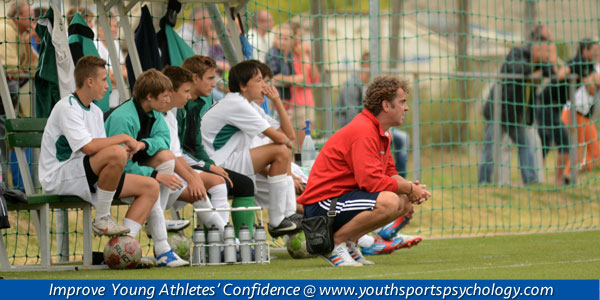
Setting Effective Goals in Youth Sports
How do you help sports kids set goals that don’t create high expectations? Wait a minute, you may ask. The whole process of setting goals creates expectations!
Read on to understand the critical difference between setting goals and creating high expectations in youth sports.
This is a big challenge for parents, coaches and young athletes. Too often, kids confuse goals with expectations. They then set high expectations for themselves and get frustrated when they don’t achieve them.
This is a mental game no-no. You don’t want your athletes to do this. It hurts their confidence and undermines their performance.
Yes, you do want kids to establish goals. But they need to understand that they can modify their goals. They should be flexible. Kids need to view goal-setting as a process.
We recently talked to J. Parker Adair about this topic. He’s a coach and former semi-pro athlete who started a high school lacrosse program and has run programs for athletes who range from pre-schoolers to high schoolers.
Goals give kids a purpose, he says. They motivate them to try hard and be passionate about their sport.
To help kids avoid working toward goals in ways that create unhealthy expectations, Adair focuses on looking at goals as a step-by-step process.
Focusing on mini-goals is key.
“I tell them to focus on little things—maybe like changing their stance or position. Fix that one thing, For example, let’s keep our eyes out when going to pass. Don’t look at the ground. Now, when you have that down, start looking at one player. If he’s open, then pass to him. It’s really a building block technique.”
We agree that helping kids establish mini goals is important. You want them to concentrate on goals that will help them stay grounded in the present. These are immediate, day-to-day goals. You don’t want them thinking about the score or the win all the time.
Some examples: Play one shot at a time. Stay in the process. Focus on one point at a time. While you’re setting these goals, don’t forget to include mental game goals. For example, ask kids to let go of mistakes quickly and focus on the next play.
This kind of goal-setting yields many benefits. Such goals help kids stay grounded in the moment. When they’re playing in the moment and not worrying about the score or the win, they’re more likely to take the essential risks needed to help them grow as athletes.
Related Articles on Kids’ Mental Game:
- Goals vs. Expectations for Kids
- The Pressure of Expectations for Kids
- Why Adults Shouldn’t Heap Superstar Expectations
*Subscribe to The Sports Psychology Podcast on iTunes
*Subscribe to The Sports Psychology Podcast on Spotify
The Composed Sports Kid

“The Composed Sports Kid” audio and workbook digital download program for young athletes and their parents or coach helps kids cope with frustration and anger in sports. Help your sports kids learn how to manage expectations and let go of mistakes so they can keep their head in the game.
The Composed Sports Kid system is really two programs in one–one program to train parents and coaches how to help their kids practice composure, and one program that teaches young athletes–ages 6 to 13–how to improve composure, let go of mistakes quickly, have more self-acceptance, and thus enjoy sports more!
